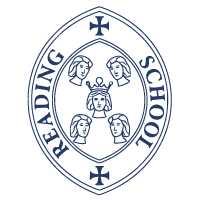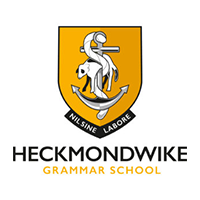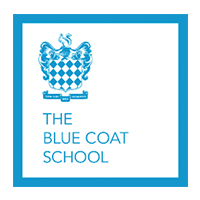Reading School
Reading School issue results to pupils in record time by outsourcing exam marking of 11-plus entrance test to ePC.

Background
Listed in the Top 10 State Secondary Schools by the Sunday Times, Reading School is a selective state day and boarding academy for boys aged 11-18 based in Reading, Berkshire.
As the only boys’ grammar school in the local area, there is a high demand for places with around 1,000 students competing for 150 places each year.
Pupil performance in an entrance exam decides admission to year 7. The entrance exam – consisting of a Maths test, an English test, and a Creative Writing paper - is administered by Future Stories Community Enterprise (FSCE) Entrance Test for Schools.
Providing opportunities for disadvantaged local children
Future Stories is a social mobility project working in partnership with local primary schools. The Future Stories project aims to ensure that Reading School is full of high ability students from a range of social and economic backgrounds.
Featured on the UK Social Mobility Awards Roll of Honour and finalists for two years running, the school seeks to raise aspirations and narrow both the attainment and opportunity gap for local children from disadvantaged backgrounds.
Since the Future Stories programme began, we've successfully increased the number of pupils from disadvantaged backgrounds in the school. However, we were concerned the entrance test was not as accessible as we would have liked for disadvantaged and children with certain disabilities. We wanted to be certain that if the children got the answers incorrect, it was because they could not solve the question and did not know the answer, rather than them having problems with the format
Caroline Mole, Director of People, Reading School
Consequently, Reading School approached an education consultant to review their exam papers and recommend formats and assessments that are most suitable for children.
Challenge
Part of the work involved sourcing a new company to mark the English and Maths exams.
Previously, the supplier provided Reading School with overprinted OMRs for the English and Maths exams, scanned returned OMR sheets, and supplied an Excel spreadsheet containing candidate results.
With the contract expiring, FSCE had decided to seek a new approach to processing the entrance test due to several ongoing challenges.
Inflexible form design
The OMR sheet was quite formulaic with Reading School being asked to fit their questions into a grid-style layout and pre-defined data capture fields.
"It was quite a rigid system", recalls Caroline. "We always felt we were squeezing the questions into the exam sheet and being told we must fit into this template".
Fixed data output
The uniform approach continued with the output of candidate results.
The supplier provided Reading School with data in a standard Excel spreadsheet. As a result, the school had to manipulate thousands of records to meet their requirements which carried a significant risk of human error.
Limited visibility
Operationally, Reading School had no control over what information they could access and no visibility of the marked exam scripts.
The school received a report from the supplier stating simply how many questions the candidate answered, but this left them unprepared to respond to parents questioning or appealing the results.
"In the past, we did not get access to a records management system at the same time as we got access to the data files. The only thing supplied was the final standardised score, so we never saw the scanned OMR exam sheets", says Caroline.
Looking to the future
Future Stories' vision is to market the entrance test to other grammar schools across the UK. As a result, they wanted to work with a supplier willing to collaborate with them in the future.
"I think we wanted to work with a company who understood that FSCE may expand and would be prepared to grow with us in the next few years. We needed a committed partner willing to explore options and provide flexible solutions, not fixed systems", says Caroline.
Solution
Caroline and the education consultant commenced their search for a company to provide scanning and automated marking services and work with them to design entrance exams.
"When we started to look for potential suppliers, we needed to quickly establish if the project was going to be economically feasible", says Caroline.
Crucially, I think we wanted a better relationship with the new supplier. We took the time to scrutinise ePC’s scanning set-up and see how flexible they could be when creating the answer sheets, which was so much better than the other companies we spoke to
Caroline Mole, Director of People, Reading School
Subsequently, FSCE asked ePC to provide admissions testing services for the 11-plus entrance exam at Reading School.
Entrance test design
The first stage involved redesigning the entrance test to make it more accessible to disadvantaged pupils. The new sheet is flexible enough to offer multiple layout possibilities and is optimised for higher capture rates with intelligent character recognition (ICR) reading short written responses and optical mark recognition scoring answers to multiple-choice questions (MCQ).
Additionally, the answer sheet incorporated cornerstones and ID blocks to reduce manual intervention and barcodes to identify candidates.
"We weren't directly involved before, so it’s been a real eye-opener for me seeing how much work goes into the set-up of a test", recalls Caroline.
We sent the example test booklet to ePC who had the draft answer sheets back really quickly. I think we bounced ideas back and forth a few times and considered if the layout was intuitive for year 6 pupils to complete, but new versions were available quickly
Caroline Mole, Director of People, Reading School
Pilot scheme
Next, ePC delivered a pilot to provide peace of mind to FSCE and Reading School. The entrance test was filled in with dummy candidate data, scanned and exported with the results supplied in an Excel template.
The pilot was so beneficial. It gave us confidence that the new sheet was more accessible, the scanners would read the mark scheme, and candidate results would be available in a more user-friendly format
Caroline Mole, Director of People, Reading School
The pilot helped the school consider where issues might occur, particularly in terms of character recognition.
ePC recommended ovals to capture MCQs as pupils could shade in the area. Bespoke rules on the sheet mean that if a child changes their mind and crosses out an A and correctly shades in D, the scanners will mark the question accurately per the mark scheme.
Updated instructions to candidates and advice to invigilators were provided based on feedback from the pilot.
Upon completion of the pilot, the answer sheet was rolled out for the entrance test and included pre-printed variable data – candidate name, primary school, date of birth, test date, and location – to improve the candidate experience and increase scanning efficiency.
Entrance test printing
ePC provided professionally printed answer papers and supplied blank sheets for late entries on the day.
Script collection
At the end of the exam, invigilators collected the completed scripts and arranged for despatch to ePC.
Crucially, each sheet includes a barcode to identify the candidate and reconcile answer sheets to enrolments, so ePC was able to notify the school of missing papers that the school had kept secure in a locked cupboard.
ePC arranged an additional collection for the extra sheets. It did blow me away a little because I was happy to arrange transportation because it was our error. Previously, we would have all been on tenterhooks wondering how the other supplier would react but ePC was very accommodating throughout
Caroline Mole, Director of People, Reading School
Scanning
At the scanning bureau, the sheets were converted to an electronic image. This was achieved by scanning exam papers into intelligent data capture software through a connected high-speed document scanner.
As each sheet was scanned, data was automatically captured with the scanning software performing optical mark and character recognition, verifying data, and exporting it to Excel.
Reading School were given the autonomy to review scanned exam papers, something that is proving to be beneficial.
We had the option to review the scanned sheets and picked up on a few answers where we felt ePC’s verification team might have been too kind. We never saw this data before and ePC were so receptive to making changes at the eleventh hour
Caroline Mole, Director of People, Reading School
Data export
After the entrance tests had been processed, the data is exported to a pre-defined Excel template.
Results
I would highly recommend ePC to other schools seeking an automated marking solution for the 11-plus exam. Our school has saved a significant amount of time during this year’s admissions process by outsourcing both the design of the sheet and exam paper scanning with results issued to pupils in record time. We have greatly appreciated the personal contact and professional service provided; it has exceeded our expectations and my colleagues speak highly of it
A.M. Robson, Chief Executive Officer, Reading School
Quicker results to pupils
ePC was able to turn around the 1,200 entrance tests in a few days with Reading School experiencing its best results turnaround as a result. Without the speedy turnaround, Reading School would not have been able to meet its deadlines with other suppliers such as creative writing assessors and statisticians.
We analysed data about a week ahead of previous years and that took the pressure off. It enabled us to release the results promptly and answer any questions from parents before they had to fill in their common application form
Caroline Mole, Director of People, Reading School
Building strong partnerships
Reading School has placed great importance on building a collaborative relationship with ePC based on trust, communication, and personal contact.
We certainly value the relationship with the team at ePC and I think it will become solidified as time goes on. The knowledge that we can eMail or pick up the phone and get an answer or not put someone's nose out of joint if we ask to change things is really important. Honestly, I think talking to a person who knows us and the project rather than being in a faceless system is invaluable
Caroline Mole, Director of People, Reading School
Secure document storage and retrieval
With around five applicants per place, entrance to the school is very competitive with parent appeals commonplace. Without any visibility of scanned images, the school had to approach the previous provider for information which was limited.
In addition to greater involvement and visibility over the process, the school now has secure access to electronic records, searchable by candidate name/number. This helps in the appeals process as the school can quickly refer to an archived sheet and confirm whether the evidence supports - or dispels - the appeal.
Moreover, it has saved time as retrieving archived answer sheets could take hours or even days previously.
If you’re looking for a document scanning company who provides excellent customer service with a personal touch, I would wholeheartedly recommend approaching ePC to see what they’ve got to offer
Caroline Mole, Director of People, Reading School





